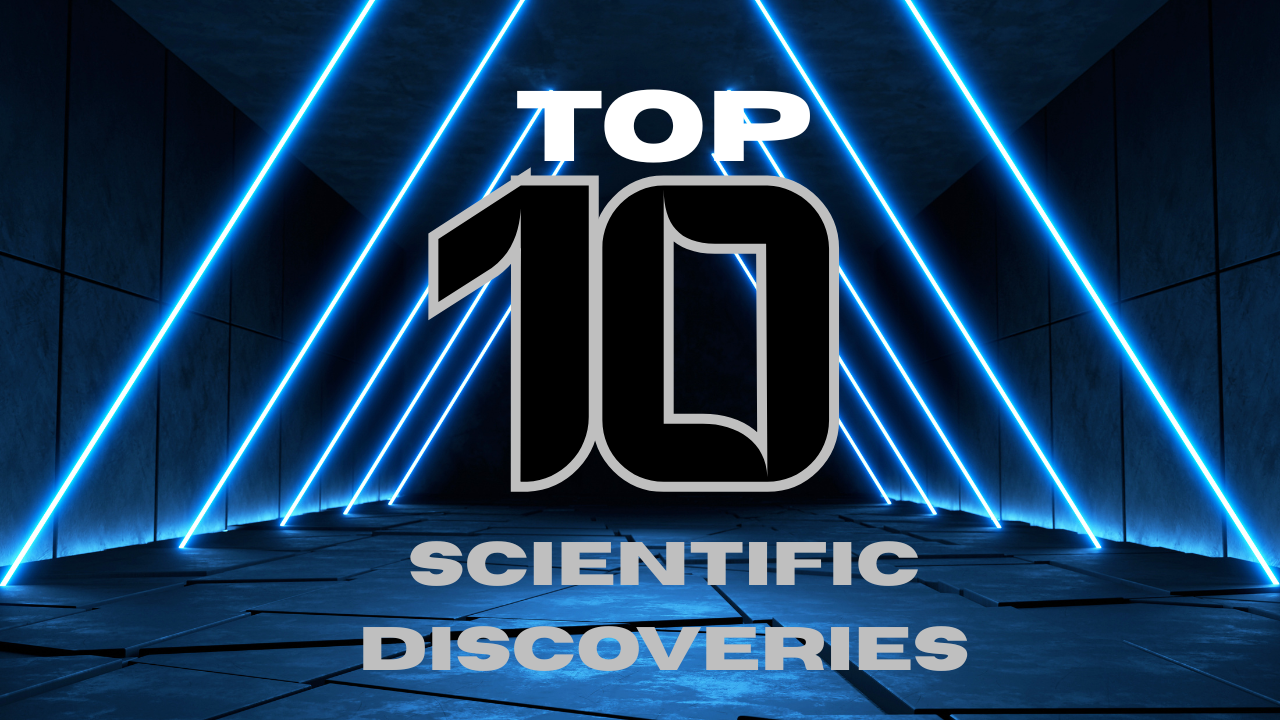Throughout human history, moments of profound insight and groundbreaking experimentation have fundamentally reshaped our understanding of the universe, ourselves, and our place within it. These scientific discoveries, often building upon centuries of cumulative knowledge, have not only expanded intellectual horizons but have also spurred technological revolutions, transformed societies, and significantly improved the quality of human life. From the movements of celestial bodies to the secrets within our cells, these scientific discoveries represent humanity's relentless pursuit of knowledge.

Top 10 Scientific Discoveries in History
Here are ten of the most impactful scientific discoveries that have profoundly shaped history:
1. The Heliocentric Model (Copernicus, Kepler, Galileo)
For millennia, humanity believed the Earth was the stationary center of the universe. Nicolaus Copernicus first proposed a heliocentric (Sun-centered) model in 1543. However, it was the subsequent work of Johannes Kepler, who described elliptical planetary orbits, and Galileo Galilei, who provided observational evidence with his improved telescope, that cemented this revolutionary idea. Galileo‘s observations of Jupiter's moons, the phases of Venus, and the moon's craters provided compelling proof against the geocentric view, despite facing persecution from the Church. This shift in understanding was one of the most profound scientific discoveries, marking the true beginning of the Scientific Revolution and demonstrating the power of observation over dogma. It laid the foundation for modern astronomy and physics.

2. Newton's Laws of Motion and Universal Gravitation (Isaac Newton)
Building on the work of Galileo and others, Isaac Newton, a British polymath, formulated the laws of motion and the law of universal gravitation in his seminal work Principia Mathematica (1687). These scientific discoveries provided a comprehensive framework for understanding how objects move on Earth and how celestial bodies interact, explaining phenomena from falling apples to planetary orbits. Newton's work unified terrestrial and celestial mechanics, establishing classical physics and providing the tools for future scientific inquiry and engineering. His contributions represent some of the most fundamental scientific discoveries in history.

3. The Discovery of Electricity (Various, notably Faraday)
While ancient civilizations observed static electricity, the systematic understanding and harnessing of electricity were scientific discoveries that primarily unfolded in the 18th and 19th centuries. Pioneers like Benjamin Franklin (US) and Alessandro Volta paved the way, but it was the British scientist Michael Faraday's work on electromagnetism and electromagnetic induction in the 1820s and 30s that truly unlocked its potential. His scientific discoveries demonstrated how electricity could be generated and controlled, directly leading to the invention of the electric motor and generator. The ability to generate and distribute electricity transformed industries, homes, and communication, making it one of the most impactful scientific discoveries of all time.

4. Germ Theory of Disease (Louis Pasteur, Robert Koch)
For much of history, diseases were attributed to bad air, curses, or imbalances of humors. The scientific discoveries of French chemist Louis Pasteur in the mid-19th century demonstrated that microorganisms were responsible for fermentation and spoilage, leading him to propose the germ theory of disease. German physician Robert Koch further solidified this theory by identifying specific microbes as the causes of specific diseases (e.g., anthrax, tuberculosis). These scientific discoveries revolutionized medicine, leading to practices like pasteurization, sterilization, antiseptic surgery, and eventually, the development of vaccines and antibiotics, dramatically increasing human lifespan and public health.

5. Theory of Evolution by Natural Selection (Charles Darwin)
In 1859, the British naturalist Charles Darwin published On the Origin of Species, presenting his theory of evolution by natural selection. This theory, built on meticulous observation during his voyage on the HMS Beagle, explained the diversity of life on Earth and how species adapt over time. It challenged prevailing religious and philosophical views on creation, fundamentally changing our understanding of biology and humanity's place in the natural world. Darwin's work remains one of the most influential scientific discoveries in biological science and a cornerstone of modern evolutionary biology.

6. The Discovery of Penicillin (Alexander Fleming)
The accidental scientific discovery of penicillin by Scottish bacteriologist Alexander Fleming in 1928 marked the dawn of the antibiotic era. He observed that a mold (Penicillium notatum) inhibited the growth of bacteria. Further development by Howard Florey and Ernst Chain (UK) transformed this observation into a life-saving drug. Penicillin and subsequent antibiotics revolutionized medicine by providing effective treatments for bacterial infections that were once fatal, saving countless lives and fundamentally changing medical practice. It stands as one of the most significant scientific discoveries in medicine.

7. The Structure of DNA (Watson, Crick, Franklin, Wilkins)
In 1953, American biologist James Watson and British physicist Francis Crick, drawing on the X-ray diffraction images produced by Rosalind Franklin and the insights of Maurice Wilkins (all in the UK), proposed the double helix structure of DNA. This elegant discovery revealed how genetic information is stored and replicated, providing the blueprint for life itself. This was one of the most pivotal scientific discoveries in biology, opening up the field of molecular biology and genetic engineering, leading to breakthroughs like gene sequencing, gene therapy, and forensic DNA analysis. It underpins much of modern US biology research.

8. Plate Tectonics (Alfred Wegener, various geophysicists)
While Alfred Wegener (German) proposed continental drift in the early 20th century, it was the accumulation of scientific discoveries from seismology, oceanography, and geology in the mid-20th century that led to the development of the theory of plate tectonics. This theory explains that the Earth's outer shell is composed of large plates that are constantly moving, causing earthquakes, volcanic activity, and the formation of mountains and ocean trenches. It unified seemingly disparate geological phenomena into a coherent framework, revolutionizing Earth sciences.

9. The Internet and World Wide Web (Vinton Cerf, Robert Kahn, Tim Berners-Lee)
While not a purely “scientific” discovery in the traditional sense, the development of the Internet's foundational protocols (TCP/IP) by Vinton Cerf and Robert Kahn (US) in the 1970s, and later the World Wide Web by Tim Berners-Lee (UK) in 1989, represents one of the most transformative scientific discoveries (or technological innovations born from scientific principles) of the modern era. These innovations in communication and information sharing have profoundly impacted every aspect of human society, from commerce and education to social interaction and scientific collaboration.
10. The Theory of Relativity (Albert Einstein)
Albert Einstein's theories of special (1905) and general (1915) relativity revolutionized physics and our understanding of space, time, gravity, and the universe. His scientific discoveries showed that space and time are not absolute but are intertwined, and that gravity is a curvature of spacetime caused by mass and energy. These theories led to the famous equation E=mc², laid the groundwork for nuclear power, and are essential for technologies like GPS. Einstein's work continues to be a cornerstone of modern cosmology and quantum physics, representing profound scientific discoveries of the 20th century.

Buy Science History Books / Find Science History Books
To delve deeper into these and countless other scientific discoveries that shaped our world, consider exploring a wealth of science history books. Some highly recommended titles include:
- “A Short History of Nearly Everything” by Bill Bryson: An engaging and accessible overview of various scientific fields and their key discoveries.
- “The Structure of Scientific Revolutions” by Thomas S. Kuhn: A groundbreaking work on how scientific paradigms shift over time.
- “Cosmos” by Carl Sagan: A timeless exploration of astronomy, physics, and life's place in the universe.
- “The Double Helix” by James D. Watson: A personal account of the discovery of DNA's structure.
- “Sapiens: A Brief History of Humankind” by Yuval Noah Harari: While broad, it effectively frames the impact of scientific revolutions on human civilization.
- “Never at Rest: A Biography of Isaac Newton” by Richard S. Westfall: A comprehensive look at Newton's life and groundbreaking work.
- “Galileo's Daughter: A Historical Memoir of Science, Faith, and Love” by Dava Sobel: Explores Galileo's personal life and scientific struggles.
These scientific discoveries, whether from ancient civilizations or modern labs in the US and UK, remind us of the boundless human curiosity and ingenuity that continues to drive progress and shape the course of history.








